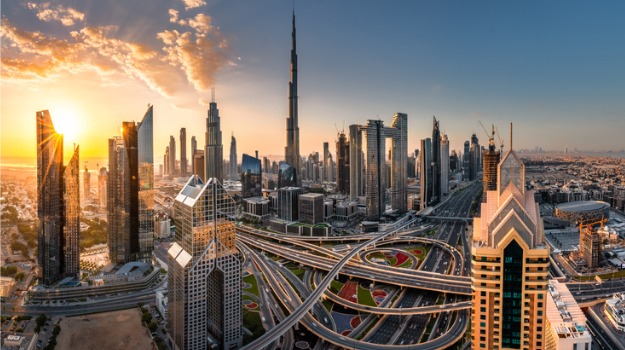UAE, Saudi Arabia Serve as Gateway to International Markets for Biopharma
July 13, 2023
Source: drugdu
 398
398

Biopharma companies, including Sanofi, AbbVie and Virax Biolabs, are finding significant business opportunities in the Middle East, particularly in the United Arab Emirates and Saudi Arabia. These countries have emerged as attractive markets for novel therapies, driven by growing populations with increasing incidences of chronic diseases such as diabetes and cardiovascular diseases.
The Middle East is emerging as a key healthcare market, with an increasing demand for innovative healthcare solutions, particularly after the region struggled to meet the challenges brought on by the pandemic, said Cameron Shaw, chief operating officer for Virax Biolabs, which recently made a deal to set up a regional headquarters in the Dubai Science Park in the UAE.
“The UAE was hit very hard by the COVID pandemic, similarly to how everyone in the world was affected,” Shaw told BioSpace. This is partly due to the high prevalence of diabetes and obesity in Dubai and Saudi Arabia, he noted, adding that these diseases need addressing even in the absence of a global viral threat.
Strategic partnerships with local entities allow biopharmas to enhance research and development or market existing products, taking advantage of incentives offered by governments eager to house innovation hubs.
For example, the UAE has established several designated free economic zones that offer business-friendly environments for biotechs open to doing business abroad. These zones, like the Dubai Biotechnology and Research Park and Abu Dhabi Global Market, provide various incentives, including 100% foreign ownership, tax exemptions and streamlined administrative processes, according to analysts at PwC.
In addition, the UAE has a well-established healthcare system and high healthcare expenditure, offering a robust market for the life sciences, said Virax CEO James Foster. The country’s location is also a strategic advantage, he added, providing easy access to additional international markets.
“It's a massive growth opportunity,” Foster told BioSpace. “We see potential investment opportunities; they’re opening up capital markets, they’re opening up funding markets there. There’s all sorts of interest from all sorts of companies like ours to go over there and access funding, which is becoming more and more difficult to come by in Western countries for a variety of different reasons.”
Besides the commercial incentives, retired industry analyst Randolph Gordon, CEO of World Health Advisors, told BioSpace that the Middle East also offers unique clinical trial enrollment opportunities.
“These countries may also provide a population on which they can develop new interventions,” he said. “A certain country has a population that may have distinguishing types of illnesses or genetics, then that also provides a resource base . . . for developing interventions targeted towards that condition or that genetic condition.”
Here’s a look at a few recent collaborations.
Sanofi
Announced earlier this month, French pharma Sanofi will partner with Saudi Arabian drugmakers Arabio and Lifera, both of which are wholly owned by the kingdom's sovereign wealth fund, to enhance vaccine production in the country. The partners seek to explore potential preventive measures, including using Lifera as a contract manufacturer for Sanofi and setting up a new manufacturing plant.
Sanofi will initially share its biotechnological know-how to produce seven vaccines, all included in Saudi Arabia’s mandatory immunization schedule. Arabio plans to leverage its local and regional distribution network to supply vaccines and biopharmaceutical products to the Saudi market. The vaccine partnership underlines Lifera’s broader objective of strengthening the national healthcare system and expanding the biopharmaceutical industry in Riyadh as part of Saudi Arabia’s Vision 2030. The plan intends to decrease Saudi Arabia's reliance on oil, broaden its economic base and enhance various public service sectors such as healthcare, education, infrastructure, recreation and tourism.
AbbVie
In June, another partnership was inked by AbbVie and the UAE. Emirati government officials in the announcement said the deal aligns with the UAE’s vision to become a global leader in healthcare innovation.
Now, AbbVie has formed a strategic partnership with the Department of Health of Abu Dhabi and local healthcare company M42 to further personalized medicine and genomics. The group uses precision medicine to analyze individuals’ genetic makeup to understand diseases better and optimize treatment strategies.
Virax Biolabs
In May, Virax signed a deal to locate a regional headquarters in the UAE. By entering the region, Foster said he hopes to increase Virax’s distribution of in vitro diagnostics and the company’s proprietary T cell tests. Foster said he envisions Virax’s T cell testing as particularly effective in diagnosing and treating potential future pandemics.
Source: biospace.com
By editorRead more on
- The first subject has been dosed in the Phase I clinical trial of Yuandong Bio’s EP-0210 monoclonal antibody injection. February 10, 2026
- Clinical trial of recombinant herpes zoster ZFA01 adjuvant vaccine (CHO cells) approved February 10, 2026
- Heyu Pharmaceuticals’ FGFR4 inhibitor ipagoglottinib has received Fast Track designation from the FDA for the treatment of advanced HCC patients with FGF19 overexpression who have been treated with ICIs and mTKIs. February 10, 2026
- Sanofi’s “Rilzabrutinib” has been recognized as a Breakthrough Therapy in the United States and an Orphan Drug in Japan, and has applied for marketing approval in China. February 10, 2026
- Domestically developed blockbuster ADC approved for new indication February 10, 2026
your submission has already been received.
OK
Subscribe
Please enter a valid Email address!
Submit
The most relevant industry news & insight will be sent to you every two weeks.



